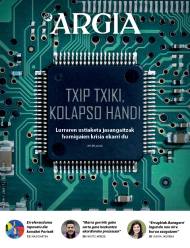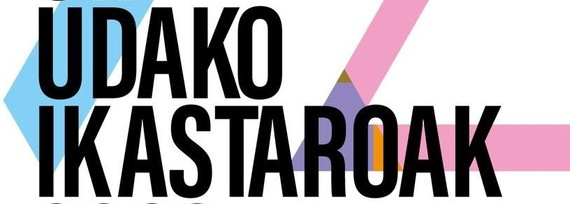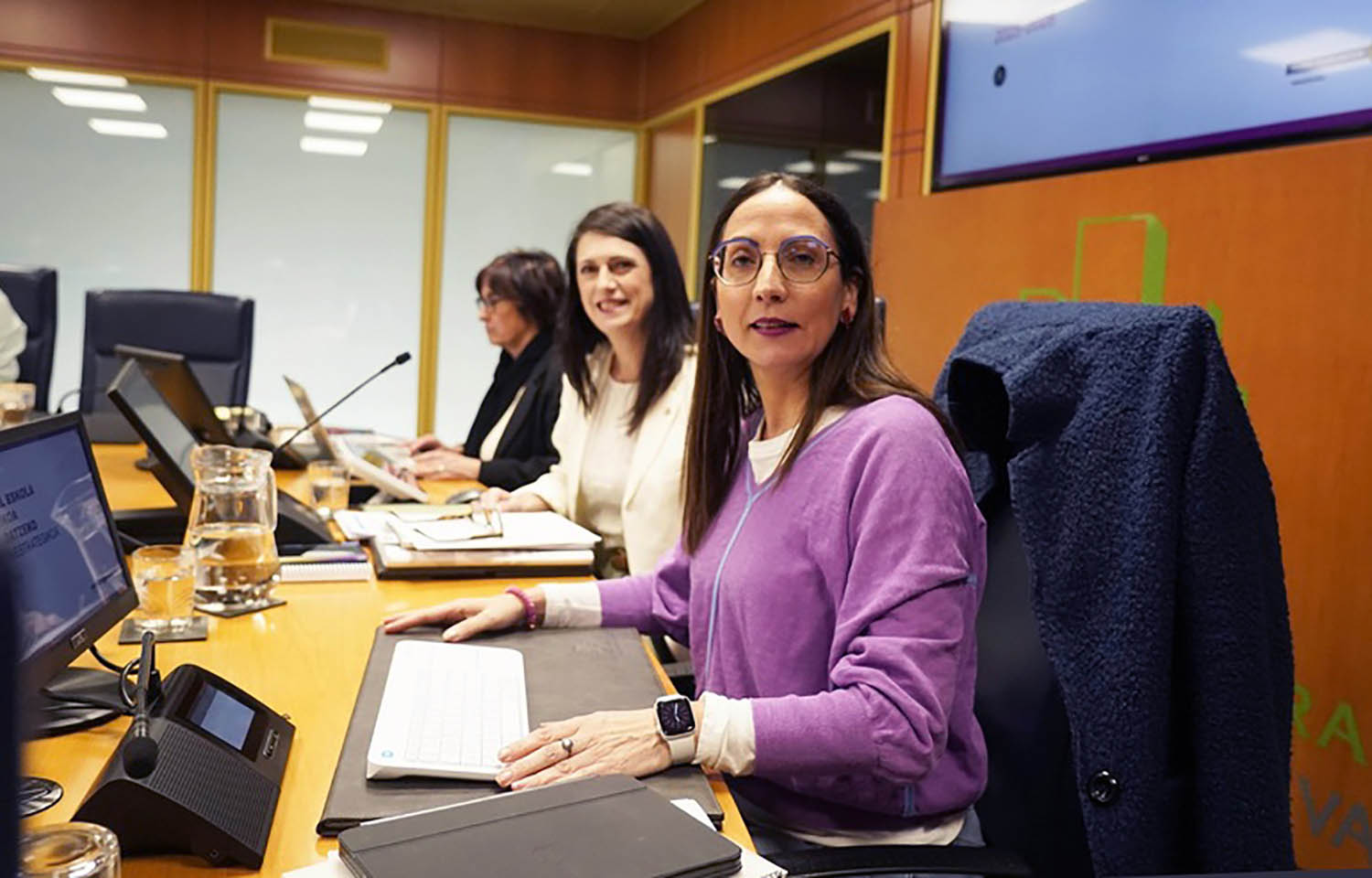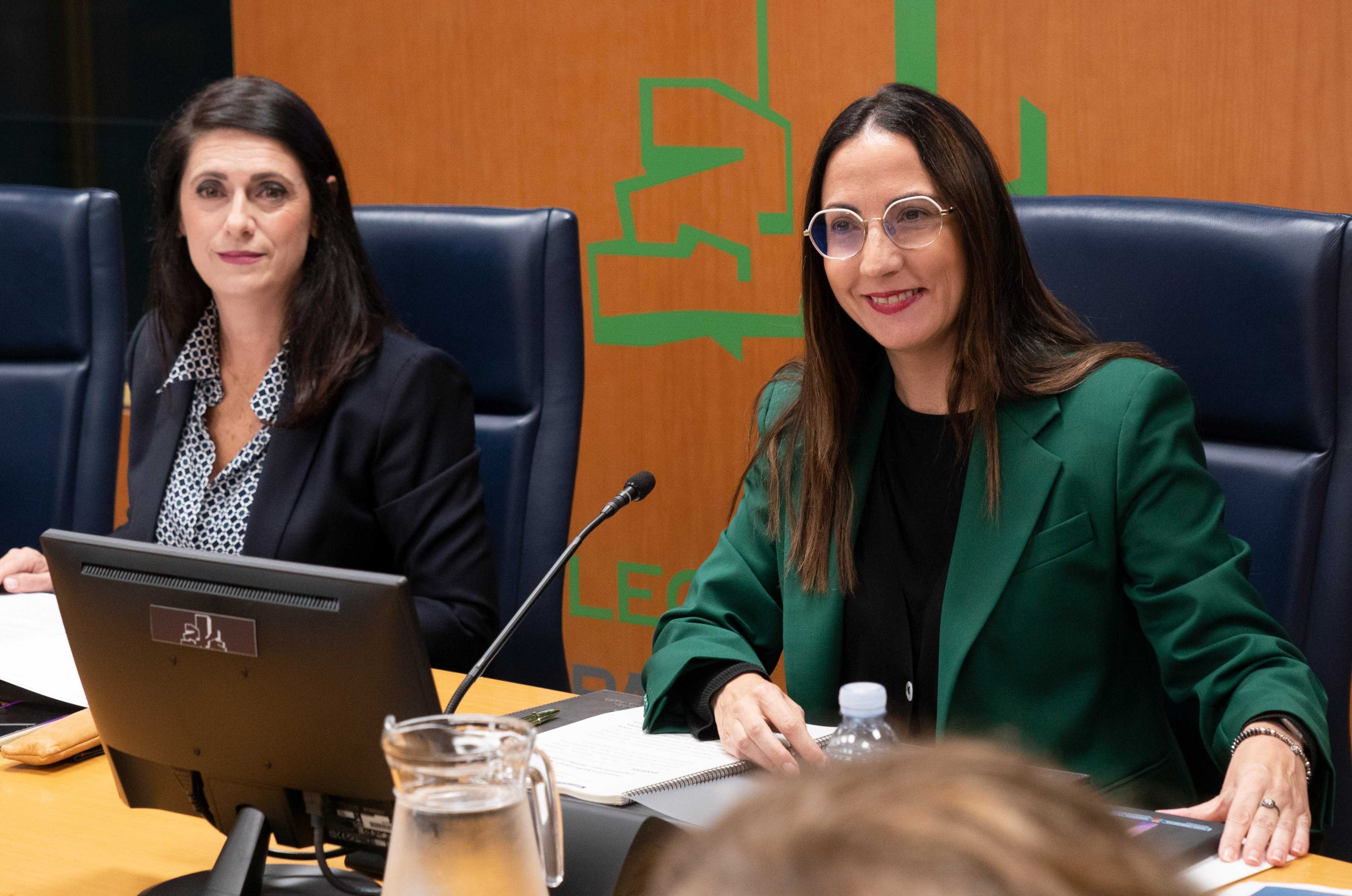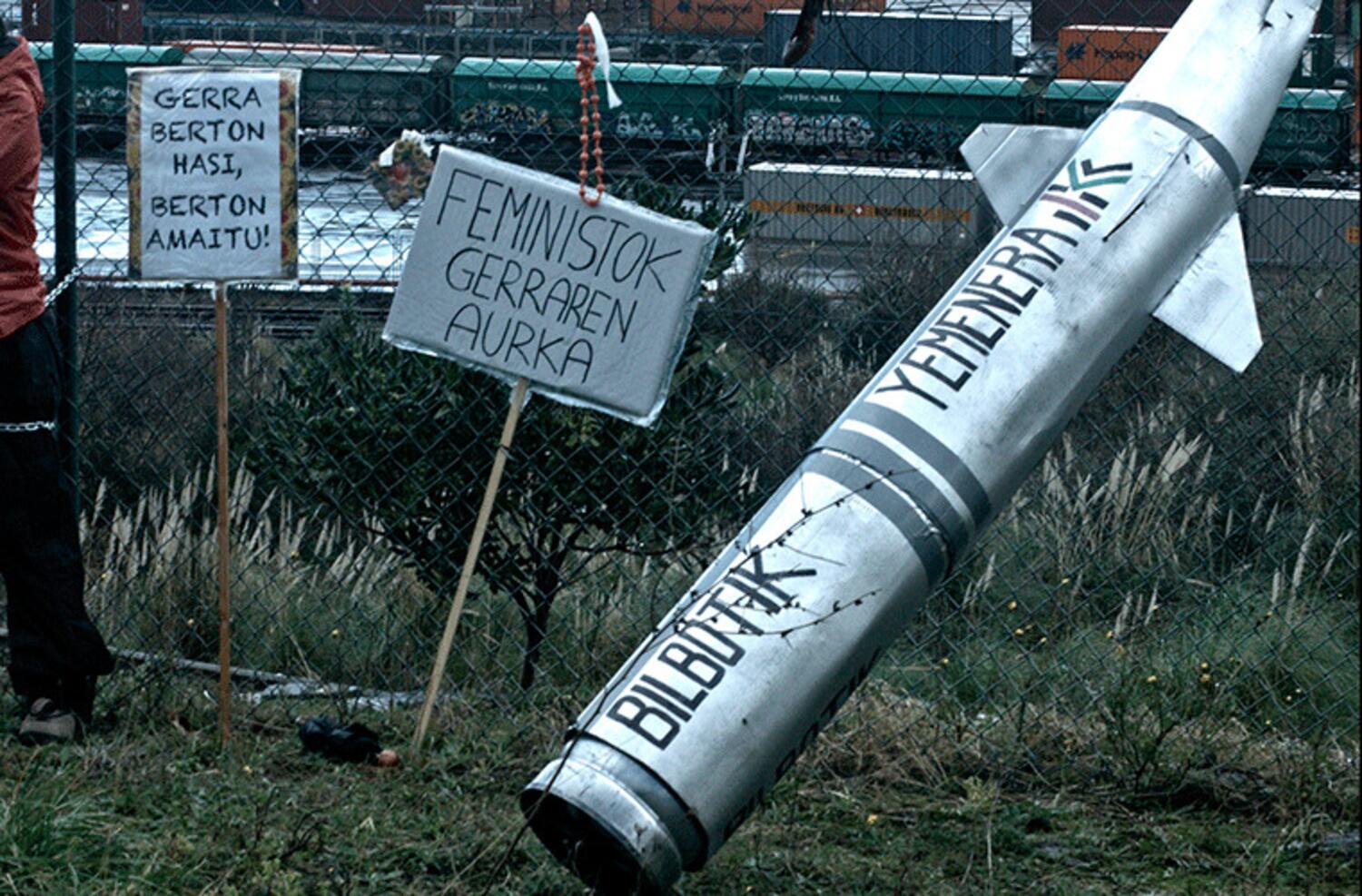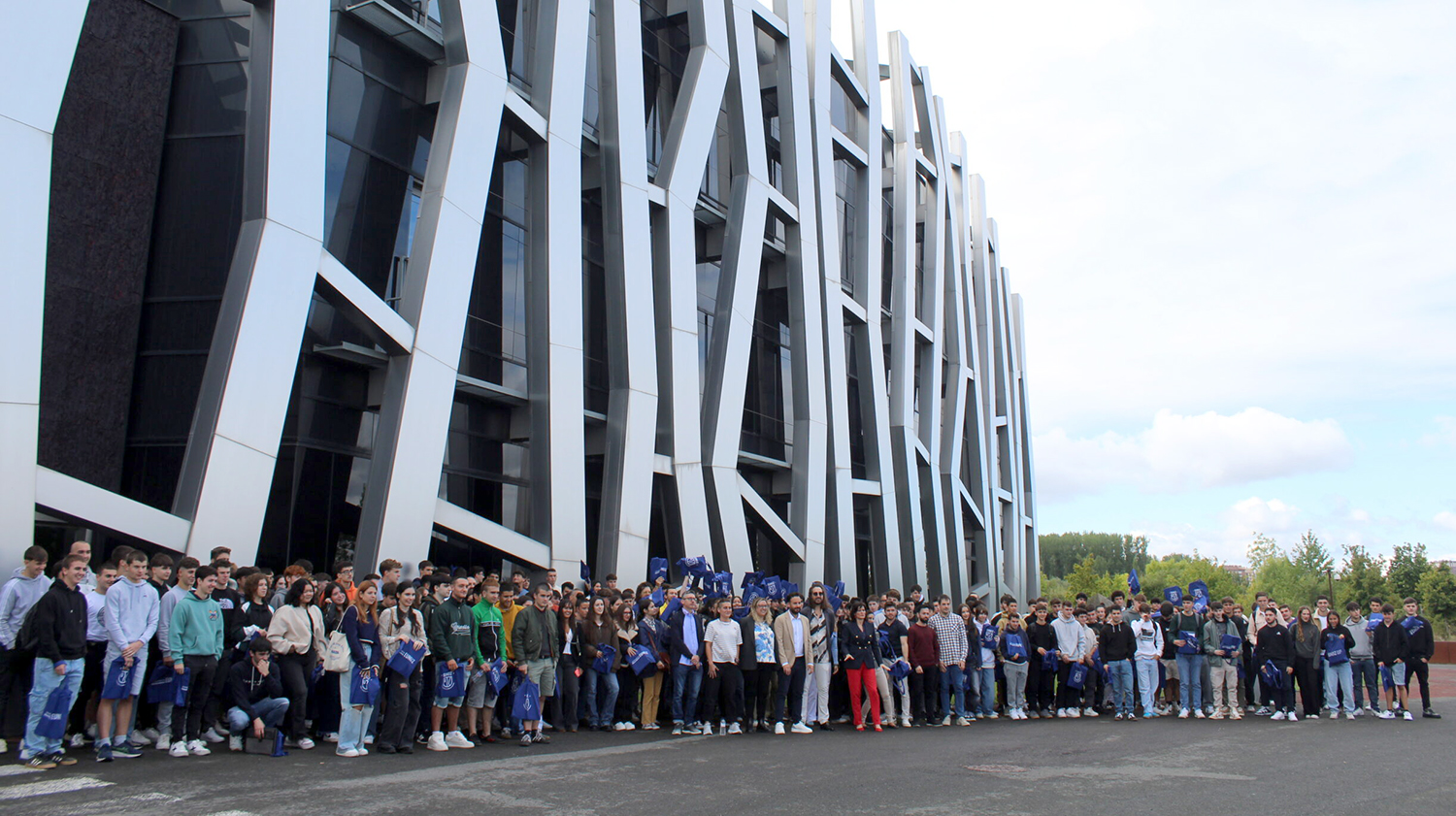"The educational agreement must solve two serious problems: Euskaldunisation and segregation"
- With the aim of the Education Act for the CAV, the parties of the Basque Parliament have begun the way to reach an agreement on education. EH Bildu has presented his educational proposal, although it aims at the whole of Euskal Herria, placing the starting point in the CAV. We ask EH Secretary of Education Bildu, Ikoitz Arrese, about the proposal that has raised powders, about the concept of advertising, about the role of municipalities, about the segregation of students, about linguistic models, about the autonomy that schools should have ...
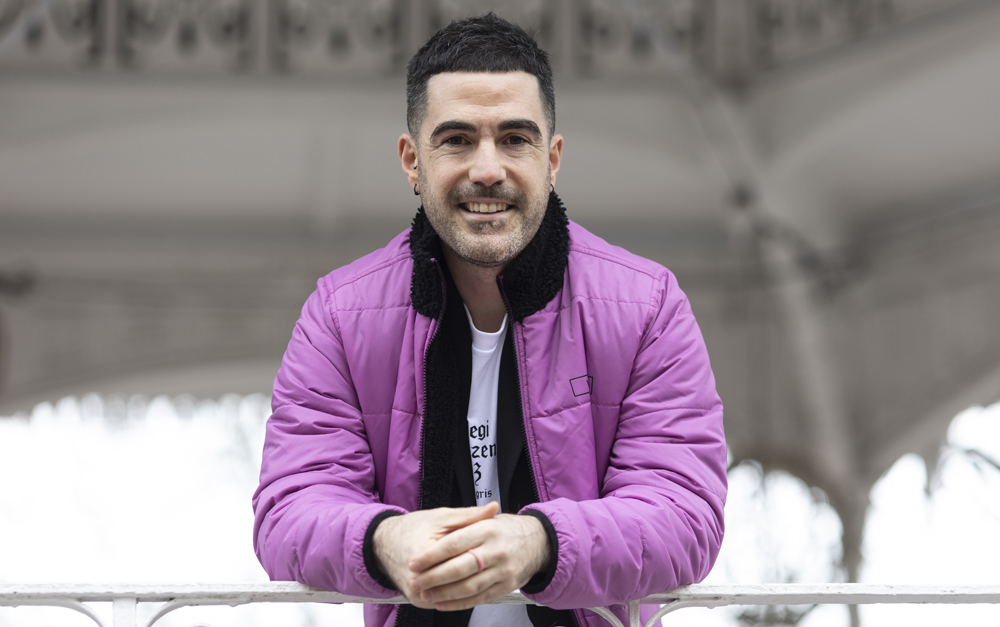
In EH Bildu’s proposal you use the concept of advertising that the Ikastolas Confederation has defended during these years: if it is a public or concerted network centre, it will be public – and will receive 100% public funding – any centre that fulfils a number of obligations and rights. Other voices claim that the most appropriate way to recognize the public character is the direct publication of the concerted centers, that is, their integration into the public network. This is a contentious issue that comes from
the 1993 educational law and it seems to us that repeating the publishing scheme at the time would be a mistake. The process of publication of the 93 came as a result of the pact between the Socialist Party and the PNV without the participation of the other parties and the educational community. The publication had very concrete objectives, not completely closing the door to the possibility of creating a third model that was state, brought the mere assimilation of the ikastolas into the public system and created many knots that have not yet been released. We have put forward advertising with everything we have learned since then and with a new look: we have very assimilated the existence of a single public model, which is linked to centralization and absolute control of the administration, but there are other public models in Northern Europe, Cuba, Portugal… We have learned from them and have adapted them to the reality of Euskal Herria, taking into account the culture of citizenship present here. For us, beyond the ownership of the centre, a public model centre is a centre that fulfils the thirteen rights that every Basque citizen should have, because we believe in the conjunction of the administration, but also of the community participation of citizens. It must be borne in mind that the rest of the public services have been created by the administration, but that in this country education has not only been created by the administration, and that urbanism has also made a very important contribution to the educational system we have. The municipalities are committed to a decentralized public model of vital importance, based on the autonomy of the centers.
In this decentralization, you propose that municipalities have a fundamental role in education.
Our education, excessively centralized, overly bureaucratic and far removed from the realities of the centers, we want to turn this pyramidal model around to be an educational model built from the bottom up. It has been demonstrated that the most participative institutions of citizenship are the local institutions, the ones closest to citizenship, the ones that best meet the needs of citizenship. During the pandemic, local institutions have been the most effective in ensuring PCs and Wi-Fi connections to students in need. It seems to us that we are making a way to ensure better quality education by allocating greater powers to municipalities. We have also proposed Collaborative Ecosystems of Education, Binding Municipal Educational Councils, in which the local educational centers themselves would participate, which are included in the public model discussed above. Although the model we propose goes beyond the ownership, it modifies the way of understanding one's ownership, since we attribute to the local institutions competencies such as educational planning, enrollment of students and media management.
"Repeating the 1993 publication process would be a mistake. It brought the pure assimilation of the ikastolas into the public system and created many knots yet to be released."
As you say, the enrolment of the students takes it to the local level. In fact, the segregation that occurs in the enrolment of students is today one of the main sources of conflict.
Along with language, segregation is the biggest shortage of our education, and we understand that segregation is totally linked to enrollment. The current model of registration does not work and it needs to be changed. We believe that the criteria should continue to be set by the Department of Education, but that their management should be carried out by the municipalities, following the Catalan model. So that the conflicts that occur in the enrollment are not discussed in remote tables, as if the students were empty numbers, but in the local educational councils mentioned, taking into account the local reality. In Vic, for example, in Catalonia, despite the difficulties, they have managed to reverse segregation on the basis of Community participation. Or in Orereta, for example, a pilot test has been carried out for four years, the city council participates in the registration, and at the moment the results are being positive.
It says that along with segregation, the main vacuum is language. EH Bildu – and other agents for a long time – proposes to overcome models A, B and D and generalize the immersion model. What is more, among the obligations that you determine to be centres of a public nature and to obtain public funding is to be centres of immersion. It seems difficult for this point to reach a parliamentary agreement, which for years has been rejected by the PNV. The Basque language is the
main instrument to seek social cohesion in this country and every student must have a good competence in Basque at the end of Compulsory Education, as must be guaranteed by the educational system. But it doesn't happen, model D itself doesn't guarantee it, and that's why we make the proposal. Is this proposal possible? We brought him to Parliament in the last legislature, and he did not go ahead, we are aware that a model of this kind will not reach political consensus, but this Parliament has agreed that at the end of compulsory schooling pupils must have European exit profiles in linguistic matters [which also in Basque have to reach a certain level].
"We propose to allocate more competences to municipalities: educational planning, student enrollment and resource management"
So do you not envisage a consensus on this point – that a model of immersion be called for in all the centres in order to achieve public character –? What are you willing to give in to an educational agreement? One thing is what we are
proposing and the other is what we are going to be willing to agree on both sides on the path of agreement. In the presentations by experts and agents heard to date by the Education Committee which has been set up, we have not, for the time being, listened to any agent who is against the model of immersion. We'll see.
They have also placed secularism in the obligations of the centres to achieve public character. Does your proposal exclude the Christian School?
I insist, one thing is our proposal and another is in the possible agreement what the outcome will be. It is clear to us that the public system we are proposing is absolutely secular. In any case, we propose as a transition what the progressive majority of Navarre has approved: Let the minimum hours of religion marked by the LOMLOE be the maximum of religion. If the Christian Schools were willing to accept it, they would be part of the public system and, if not, members of the private network, according to our proposal.
Imagine that ikastola, for example, is part of the public system that you propose and that the Christian School should be left out, it does not seem that the majority of Parliament accepts it.
The Christian School network in the CAV accounts for 35% of the total educational system. What we are proposing is that the current public school would have to make a transformation, just like the ikastolas, just like the Christian School. And, among other things, it seems to me that one of the main things in the transformation that the Christian School should do is to put aside religion, and the consensus achieved in Navarra can be the model that we can bring to the CAV, with all its contradictions.
"Our proposal to generalize the model of immersion to all centers did not go ahead in the previous legislature. We are aware that there is no political consensus"
They claim the autonomy, self-management and self-government of the centers. Is there a risk that the recruitment of teachers will be done to their liking? In the centres that are part
of the public model that we are proposing, all contracts have to be transparent and the administration has to do inspection work to ensure that. The current Public Employment Offer OPE model is totally obsolete, still in the hands of Madrid, and in a transitional phase a different OPE model from macro-studies would have to be put in place, as well as mechanisms to end the enormous temporality rate of workers, if we really want stable educational projects. The only way to guarantee equal opportunities is not the OPE, and we are committed to a zero-kilometre education that favours the participation of professionals close to and close to each other; in this sense, the usual thing should be that teachers can also have jobs in nearby centres.
Continuing with the autonomy of the centers, is there a risk that first- and second-degree centers will be created by driving their own planning and supply?
We trust the educational projects of the centers. What happens? Nowadays the centers lack pedagogical leadership, sufficient means and sufficient autonomy for the proper development of educational projects. The philosophy of “a school center, an educational project” is enriching for the public and for the educational system, and we want to eliminate this fear of autonomy, because the centers would participate in the local educational councils and in them would participate both the municipalities and the Department of Education, intervening if there were any stumbling blocks for lack of confidence.
In addition, he says that the first and second degree centers, but nowadays there are many different types of centers, each center is at one point and the degree of empowerment of the center is very different; the educational councils we propose would be balancing, giving more to those who have less resources, so that they can develop a quality educational project.
The transmission of Basque culture is of great importance in its proposal and proposes the creation of an institute to guarantee this transmission in the curricula. It is true that Spanish and French laws determine our educational curriculum, but, for example, 50% of it is in the hands of our administrations in the South. How is this competition exercised?
More than 60% of the editorials that generate the curriculum of the Basque centers are Spanish editorials with a Spanish vision. The transmission of Basque culture is in question, among other things because there is no firm educational policy in favour of Basque content and knowledge from the government, so these contents are defined according to the educational project of the center and the freedom of professorship of teachers. The last example is that of the curricular decrees issued by the former Minister of Education of the Government Cristina Uriarte, Heziberri, who were the Basque version of the LOMCE. To cope with this – and knowing that it is our desire that 100% of the curriculum be in our hands – what we propose in the transition phase is that the 50% competence in the curricular management be done in a radical and collaborative way; that it is not as until now the Department of Education that determines the curriculum through decree, but that a Institute for the Empowerment of the Basque Country and the Basque Culture participate in the
"We've gotten without red stripes in the process of reaching an educational agreement, the question is what we're going to do strength."
You mentioned Cristina Uriarte. In her eight-year legislature, we saw no trace of agreement on the path of the CAV Education Act. Now it seems that the educational agreement is close to the parties of the Basque Parliament and Iñigo Urkullu has already announced the new Education Act for next year. What happened? The Department of Education that we have had in
the last two legislatures has been absolutely hermetic and closed in its approaches, has acted with impositions and without dialogue. In this legislature, both the counselor and the team have changed in Education, and the only thing that has happened is that we have another Department of Education and that in the face of this educational model that may be on the threshold of a collapsing situation we have all done an exercise to mark the turning point, because we have seen the conditions to start talking. EH Bildu has argued since its foundation that education needs a popular agreement that then gives way to the law, and we are in that first phase of agreement. From the outside, the agreement can be taken for granted, but the agreement does not exist today and it will be the agreement that is agreed by Parliament’s Committee on Education, after hearing all the presentations we are receiving from the actors and experts.
Therefore, there are conditions for the agreement, but EH Bildu does not seem to be close to how the Department of Education understands its education. For example, the extension of private university Euneiz in Vitoria-Gasteiz has just been approved with the votes of those in the Department of Education, and you have strongly criticised this project. The
PNV and EH Bildu, or the Department of Education and EH Bildu have a different educational model, and an example of this is not only Euneiz, but also that EH Bildu has adopted little of what this Parliament is proposing in relation to education, in many ways we have not reached an agreement with the PNV. But having said that, it is true that the willingness to start talking and to reach a possible agreement has been evident since the beginning of the course, on the part of both sides. And we are also pleased to see that the Education Counselor refers not only to many of the things that EH Bildu has in his proposal, but also to the demands of the educational communities, the role of municipalities, the pedagogical transformation that the directions need, the autonomy of the centers… Instead of looking with whom we do it, what we do, that is the important thing for us.
 I asked him what they are prepared to give in to reach an agreement. I'm going to ask the question differently. What are they not going to give in to? We are working within
I asked him what they are prepared to give in to reach an agreement. I'm going to ask the question differently. What are they not going to give in to? We are working within
our proposal in the committee of agreement, but we are aware that the agreement will be the result of a phase of hearing the papers and of a negotiating process, and therefore not only the parties, but also the educational community may not fully join our proposal or make contributions that will improve it. We have made a commitment to our militants: whatever the agreement, an assembly of EH Bildu will have to ratify it, and our last vote on the agreement will be decided by our plenary.
And answering his question, what would we not take away from him? We have entered into this process without red stripes, the question is what we are going to exert our strength, and we are going to do it mainly in three parameters: on the one hand, the education system needs a profound transformation, this agreement cannot be a patchwork, and on the other hand, it has to set in motion two major problems: to make a leap in Euskaldunisation and to define mechanisms to deal with segregation. All of this, knowing that when we talk about agreement we are not talking about law, and that the path of agreement to the law is also going to be complicated, it is going to ask for work.
Within the framework of its educational proposal, the ikastolas and the public school have been pidiendo.Todo this is positive: this course we
have managed to put the issue of education policy at the heart of the political debate. It is true that in many cases the debate has taken place in 140 characters, through social networks, and since we do not share that form we have not got into it. Education is very important to this people and we deeply believe that it is a debate to be conducted with fine feathers.
During these days you are hearing in Parliament lectures from about a hundred agents to reach an educational agreement. From the above, what would you point out?
They all tell us that we have to change this and reformulate our education system, and they all encourage us, they tell us that we have a big challenge but we don't let ourselves pass by. Now is the time. On the other hand, the idea of decentralization and municipal participation is also being repeated, speeches are being heard in favor of local policies in relation to education.
We have had to endure another attack on our language by the Department of Education of the Government of Navarre; we have been forced to make an anti-Basque change in the PAI program. In recent years, by law, new Model D schools have had to introduce the PAI program and have had... [+]
Public education teachers have the need and the right to update and improve the work agreement that has not been renewed in fifteen years. For this, we should be immersed in a real negotiation, but the reality is deplorable. In a negotiation, the agreement of all parties must be... [+]
Lehengai anitzekin papera egitea dute urteroko erronka Tolosako Lanbide Heziketako Institutuko kimika industrialeko ikasleek: platano azalekin, orburuekin, lastoarekin, iratzearekin nahiz bakero zaharrekin egin dituzte probak azken urteotan. Aurtengoan, pilota eskoletan kiloka... [+]
Garai kuriosoak bizi ditugu eta bizi gaituzte, zinez. Hezkuntza krisian dela dioten garaiak dira eta, gutxien-gutxienean, aliritzira, ba aizue, 2.361 urte ditu gaurgero boladatxoak.
Ez zen ba debalde joan Aristoteles bere maisu maite Platonen akademiatik lizeo bat muntatzeko... [+]









